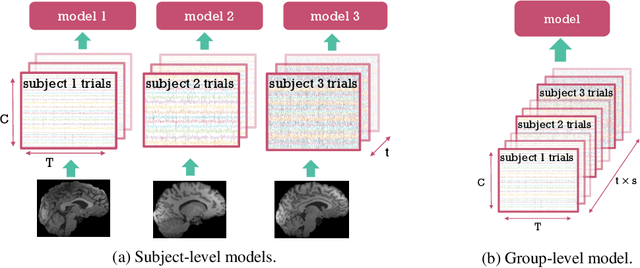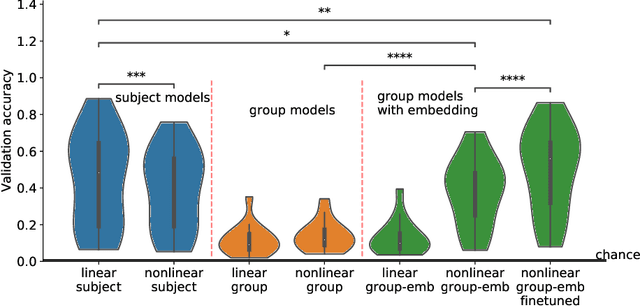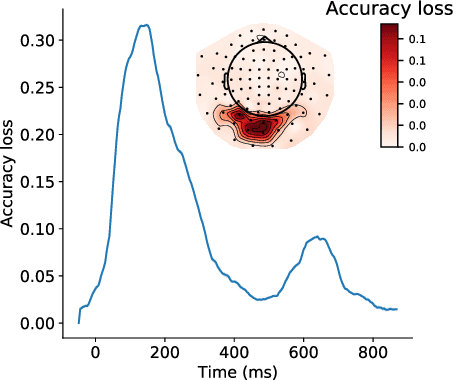Mats Van Es
Generalizing Brain Decoding Across Subjects with Deep Learning
May 27, 2022



Abstract:Decoding experimental variables from brain imaging data is gaining popularity, with applications in brain-computer interfaces and the study of neural representations. Decoding is typically subject-specific and does not generalise well over subjects. Here, we investigate ways to achieve cross-subject decoding. We used magnetoencephalography (MEG) data where 15 subjects viewed 118 different images, with 30 examples per image. Training on the entire 1s window following the presentation of each image, we experimented with an adaptation of the WaveNet architecture for classification. We also investigated the use of subject embedding to aid learning of subject variability in the group model. We show that deep learning and subject embedding are crucial to closing the performance gap between subject and group-level models. Importantly group models outperform subject models when tested on an unseen subject with little available data. The potential of such group modelling is even higher with bigger datasets. Furthermore, we demonstrate the use of permutation feature importance to gain insight into the spatio-temporal and spectral information encoded in the models, enabling better physiological interpretation. All experimental code is available at https://github.com/ricsinaruto/MEG-group-decode.
 Add to Chrome
Add to Chrome Add to Firefox
Add to Firefox Add to Edge
Add to Edge